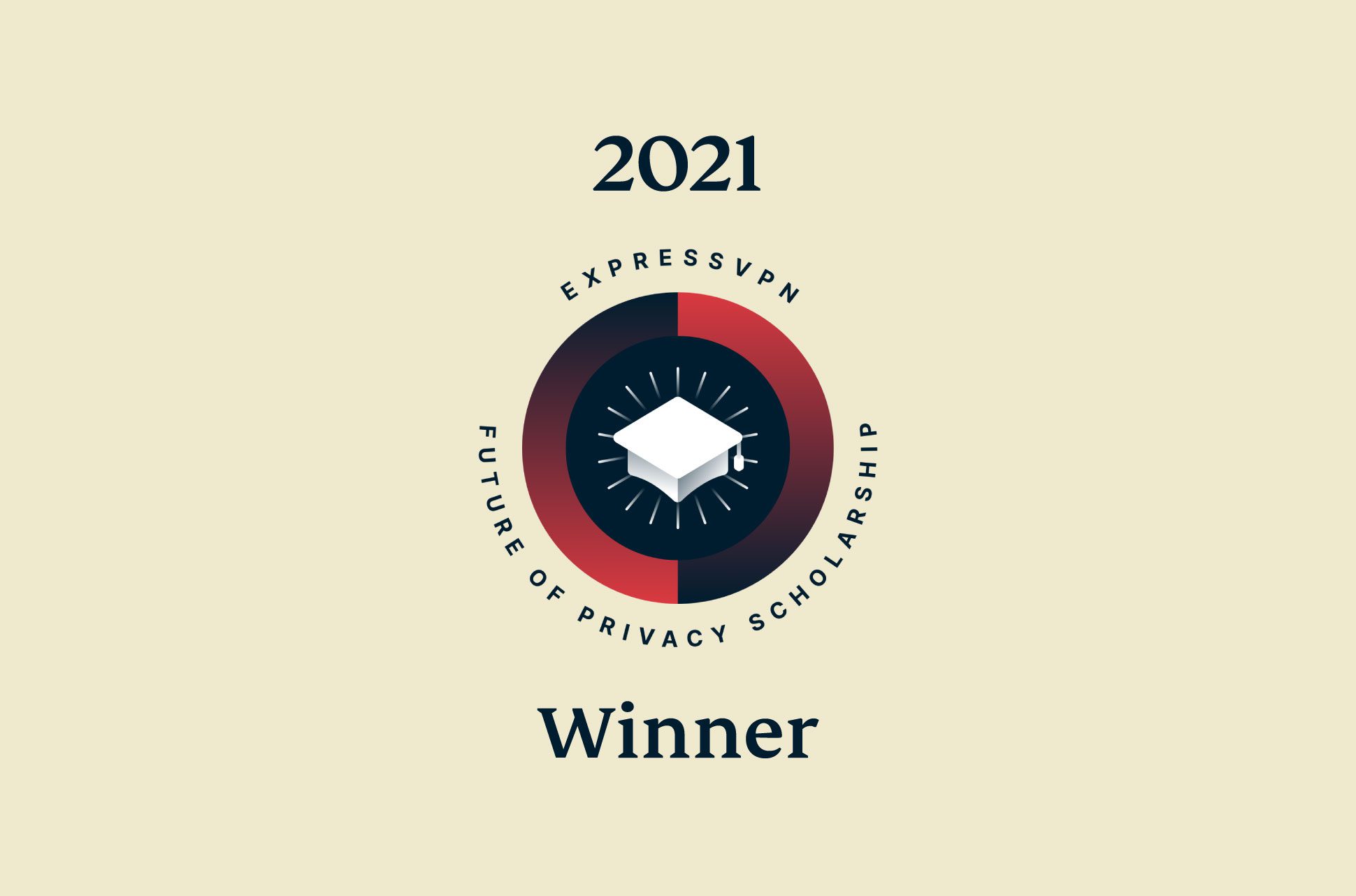Announcing ExpressVPN’s 2021 scholarship winner


We are excited to announce the winner of the ExpressVPN Future of Privacy Scholarship 2021: Ishmael Liwanda, a law student at the University of Bristol, UK. Congratulations!
This year, our essay prompt asked students to discuss how countries should approach public health while also considering individual privacy. The Covid-19 pandemic has put this question into sharp relief, with countries attempting to mitigate the pandemic with an array of sometimes-questionable policy measures.
We received over 1,200 entries tackling the topic, with plenty of exploration into how the intrusion into individual privacy for the sake of public health may or may not work, as well as possible approaches to mitigate the risk of privacy infringement during crises.
We chose to award the $5,000 scholarship prize to Ishmael’s nuanced take on the topic, and thoughtful analysis of the topic.
His answer suggests a reframing of the issue by viewing privacy as a subset of public health instead of competing forces, with any policymaking requiring a culture and system of public consultation during a crisis.
You can read his essay on our scholarship page.
The competition was tough, but we chose five runners-up who also presented well-crafted, compelling arguments. Each runner-up wins a 12-month ExpressVPN subscription.
They are:
- Michelle Wai Man Lo - Imperial College London, UK
- Allison Levy - University of Ottawa, Canada
- Nicolás Centeno - Geneva School of Diplomacy and International Relations, Switzerland
- Krystyna Denys - University of Calgary, Canada
- David de Gruijl - Delft University of Technology, The Netherlands
Q&A with our winner
We spoke to Ishmael about his winning essay, the privacy measures he takes, and how he plans to use his degree to help others when he graduates.
1. What are some of the digital privacy issues you encounter in your daily life? Do you take steps to protect your digital privacy?
The biggest privacy-related issue I get is the constant tracking from websites when browsing the internet. For example, I have had instances where, in trying to book or buy a bus/train ticket, certain websites raise ticket prices in real-time when you visit their website multiple times. Internet cookies that track individuals and store personal information can be dangerous, especially when the websites that track people suffer a cyberattack. This can lead to sensitive information going into the hands of criminals and scammers.
Thankfully, the UK is part of the GDPR consortium that requires websites to seek your consent before they can use cookies. I try as much as possible to ensure that I enable as few cookies as possible when I visit websites or alternatively use browsers like Mozilla Firefox, which stops third-party cookies from tracking users.
2. In your essay, you mention several countries’ approaches to handling the pandemic. What rules or procedures that came about during Covid-19 have surprised or alarmed you most?
The UK government granting the British police access to track and trace data was the most alarming for me. It illustrates the serious problems that can arise in viewing the right to privacy as a nice to have, as opposed to a fundamental aspect of public health and human autonomy.
On a “case-by-case basis,” the British police were granted access to people’s track and trace data, which, in my opinion, did more damage than good. I think this is partly because of the perception, especially at the start of the pandemic, that authoritarian nations handled the Covid-19 pandemic better than democratic countries due to their harsher lockdowns and more intrusive surveillance policies. The idea was that the only way to get people to comply with public health policies was to threaten them with state violence.
This is dangerous, especially for a nation like the UK that is supposed to be a bastion of democracy and liberty. This sets a precedent that in times of crisis, perceived or real, the government can infringe on our privacy rights, and that data and privacy protection laws are only a formality. Who’s to say that in the future, depending on the government of the day, such laws and regulations may be used by governments to spy on political dissidents, journalists, or activists in order to silence or eliminate them?
Furthermore, it is important to think about who this policy affected the most—namely working-class men, women, and people of color. People who often can’t afford to isolate or stay indoors without going outside to work for extended periods of time. Rather than addressing structural inequities that contributed to some people being unwilling to comply with self-isolation orders, instead the government subject them to the tyranny of the state.
It is specifically in times of crisis that we should be most vigilant in protecting our personal liberties. What makes liberal democracies special is their commitment to upholding human dignity and individual autonomy. This makes privacy central to the democratic project. We shouldn’t be so quick to give it up.
3. How likely do you see laws and regulations implemented during the pandemic becoming permanent or being misused?
For most countries, I doubt that many of the Covid-19 laws, in their current form, will last beyond the pandemic. What is more dangerous, I think, are the precedents being set by governments worldwide—namely that in times of crisis, the erosion of civil liberties is acceptable. That issues such as privacy or personal autonomy can be mere afterthoughts. The problem going forward will be future regulations and laws that attempt to erode personal freedoms in the name of “national emergency.” I think it’s important for us all to fight for our personal liberties, especially the right to privacy.
4. What are you currently studying, and what do you hope to pursue in the future?
I am currently in my final year of law school, which I have enjoyed studying so far. My hope is to pursue a career in law, working as a corporate lawyer in a law firm. However, I would like to use the skills and contacts I gain in the UK and move back one day to my home country of Malawi and be part of the generation of young people that contributes to the economic growth of my country and region.
Climate change, changing geopolitical landscapes, and the technological/digital revolution present enormous challenges for the developing world but also a wealth of opportunities for sustainable economic growth. Africa, for example, has an abundance of natural resources, a plurality of cultures and ethnicities, along with being the youngest continent on Earth (over 60% of the continent's population is under the age of 25). Africa's past is rich and its future is bright. I hope to be part of its amazing story.
***
Is privacy a topic that matters to you? Consider entering next year’s essay competition for the ExpressVPN Future of Privacy Scholarship! Details to come in early 2022.
Take the first step to protect yourself online. Try ExpressVPN risk-free.
Get ExpressVPN



